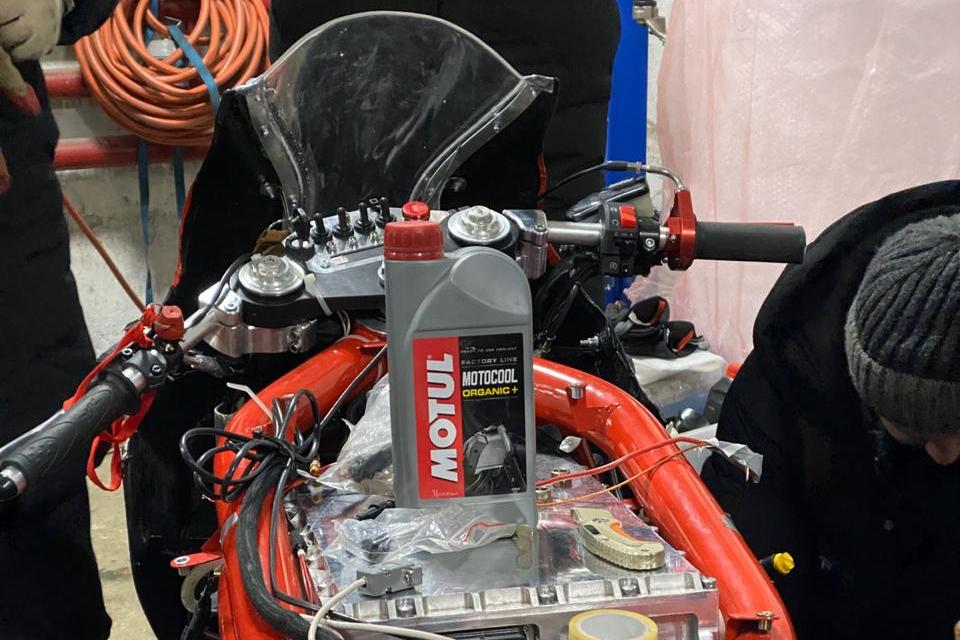ambassadors
The Polytech University in Moscow is known for its avantgarde approach to engineering. The students love motorsport and the challenge that comes with it. They’ve competed in various competitions such as the Formula Student championship and the Smartmoto competition in Spain. With the help of Motul Russia, the university took on a new challenge building a speed bike for the Baikal Mile. The dean of the school’s transportation department tells us the story.
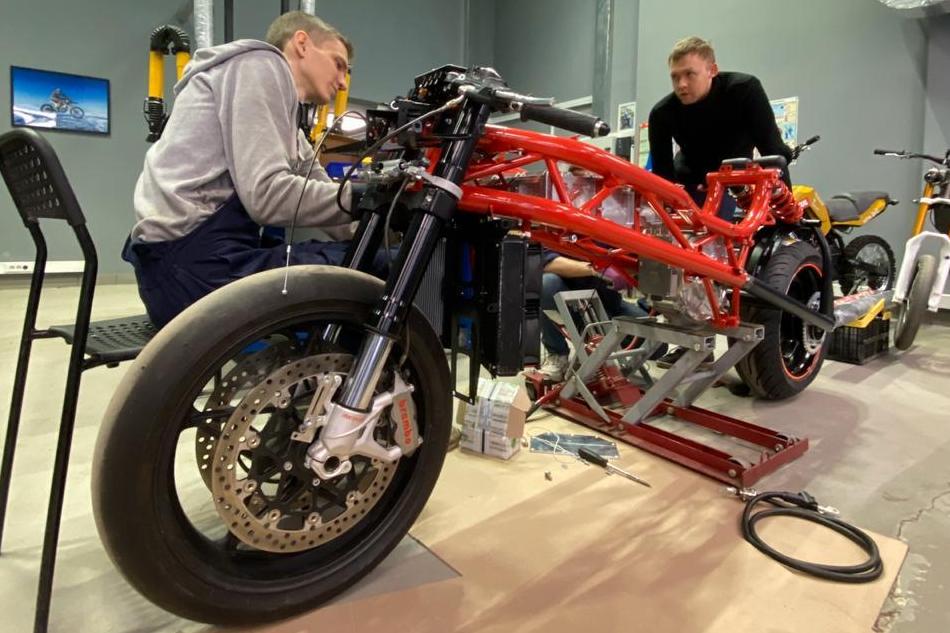
Pablo, Polytech University is known for its competitive approach. This is not the first time you’ve entered a competition with one of your projects?
No, definitely not. I would actually say it’s part of the culture we have here. We’ve been participating in Formula Student for the better part of 10 years in both local and international championships. It’s the best ways for our students to get the experience.
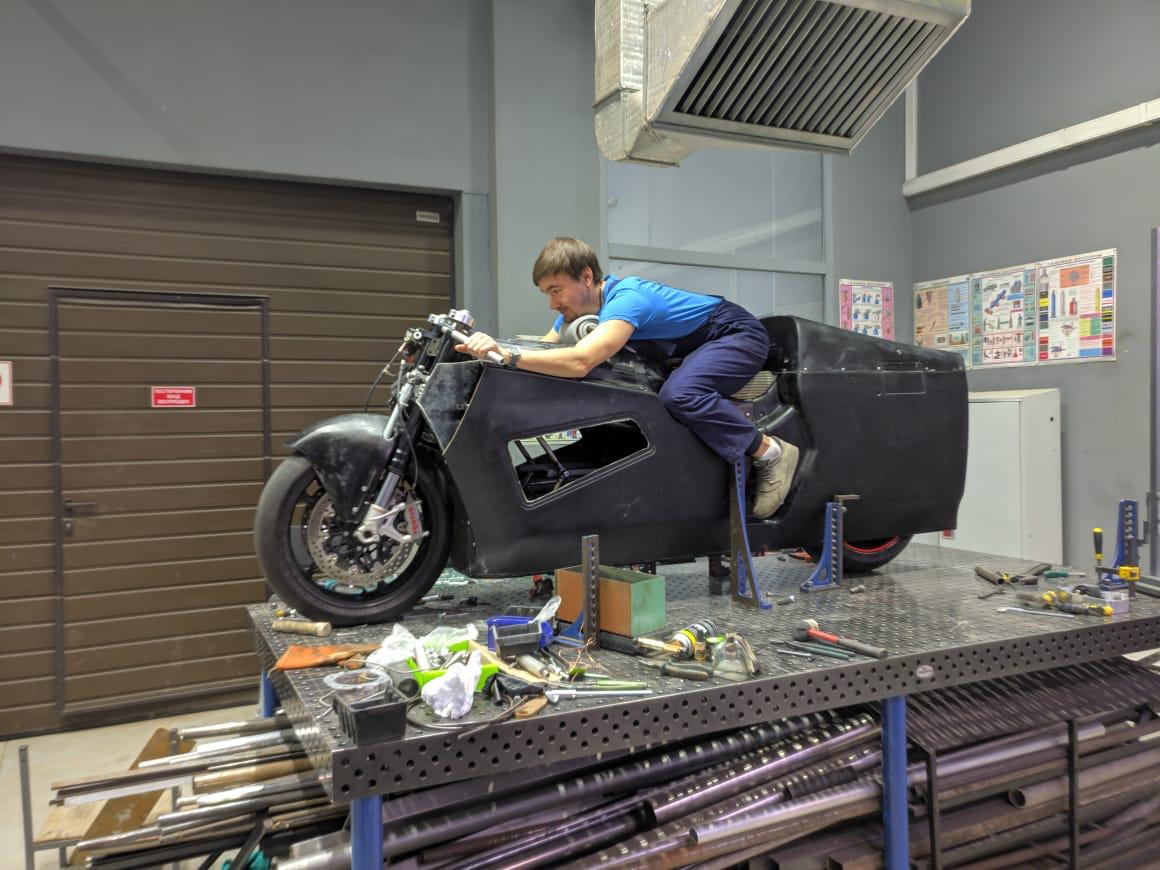
Is this the first project on two wheels?
It’s not. But it is the first speed bike we’ve built. In the last few years we’ve competed in a Spanish competition called the Smartmoto Challenge where we first built a city bike and after that an enduro bike. We heard a lot of amazing things from an event called the Baikal Mile, so last year we decided to participate in the event for the first time. On top of that we took the record for the fastest electric bike with our enduro bike that was built for the Smartmoto Challenge. Mind you, we only managed 105km/h and we got the record as we were the only participant in our category (laughs).
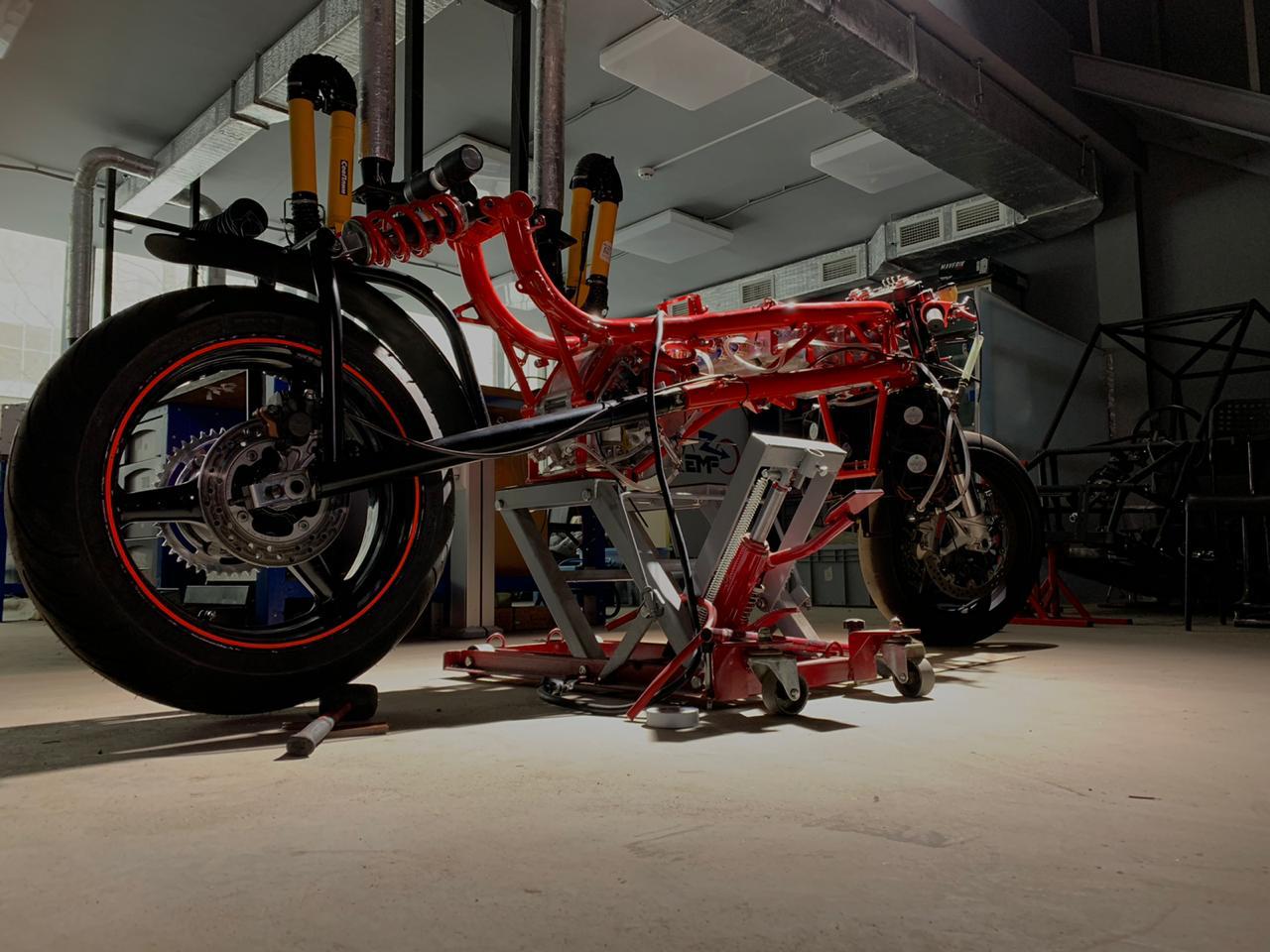
What made you come back with a purpose-built speed bike?
It’s an amazing event and we knew we could do more. With the support from Motul Russia’s Anton Malyshev, team leader Semyen Zemtsev and his students went to work. In only two months they created a bespoke speed bike that, in testing, was capable of doing 305km/h. They called it the EMP Mig X, like the fighter jet. It’s an electric speed bike with a 600volt battery producing 120kw of peak power.
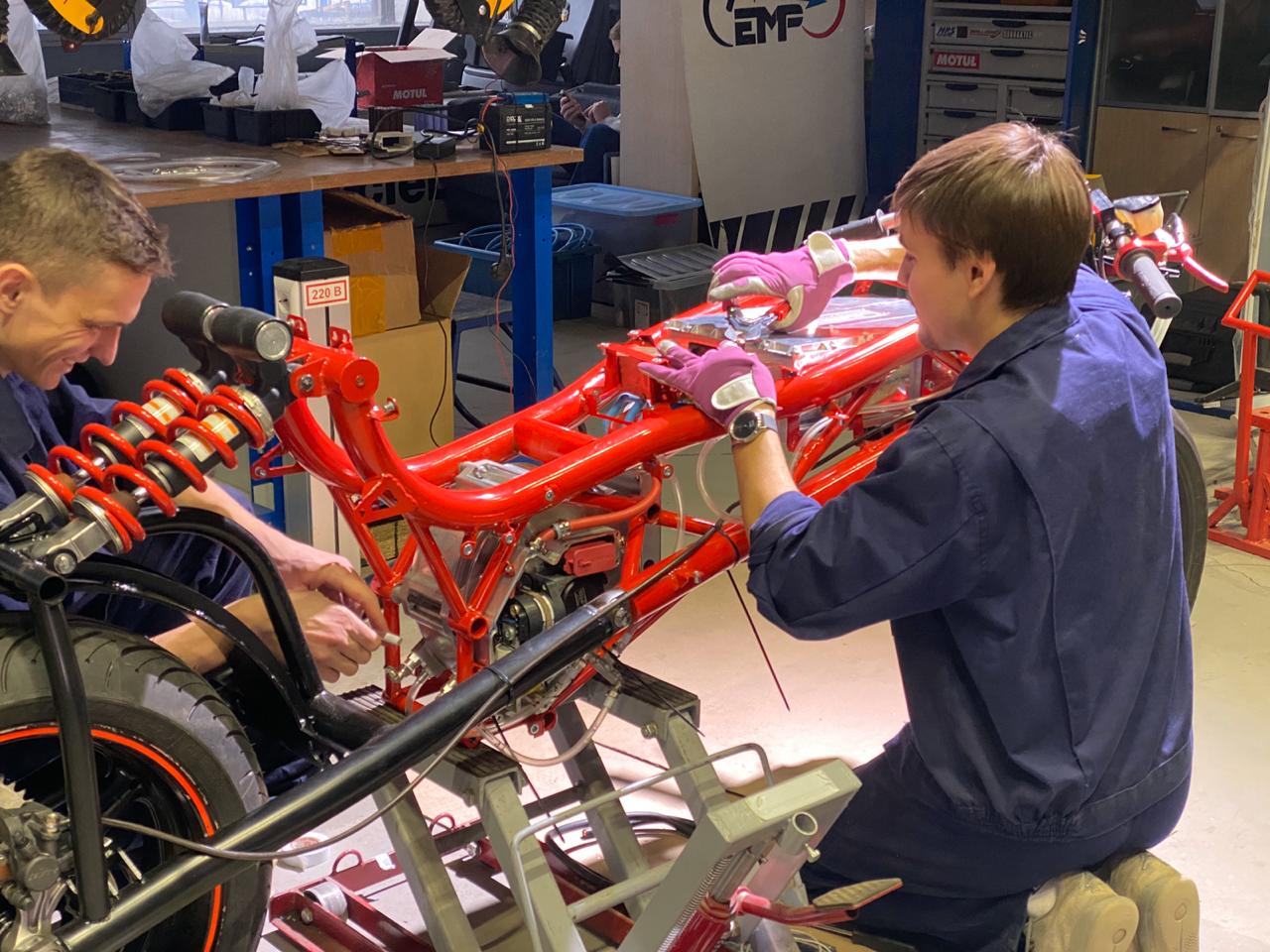
Doing a test and racing on a lake are two very different things. What was the biggest challenge during the Baikal Mile?
The conditions were very challenging. It was extremely cold (below -20°C) and this caused the rubber of the tires, although they had spikes, to become extremely hard. We were also afraid of damaging our batteries. In cold conditions aluminium within the battery can contract causing a contact which could short the battery. Because of this we decided to use 80% of the bike power so as not to stress the batteries too much. We ended up setting a record of 210km/h, which is respectable given the conditions. But we know the bike had more. The next day we came back to do another run, this time in more favourable conditions (-10°C to—5°C) and as we suspected our test rider Mikhail Mikhin managed to record a speed of 230km/h
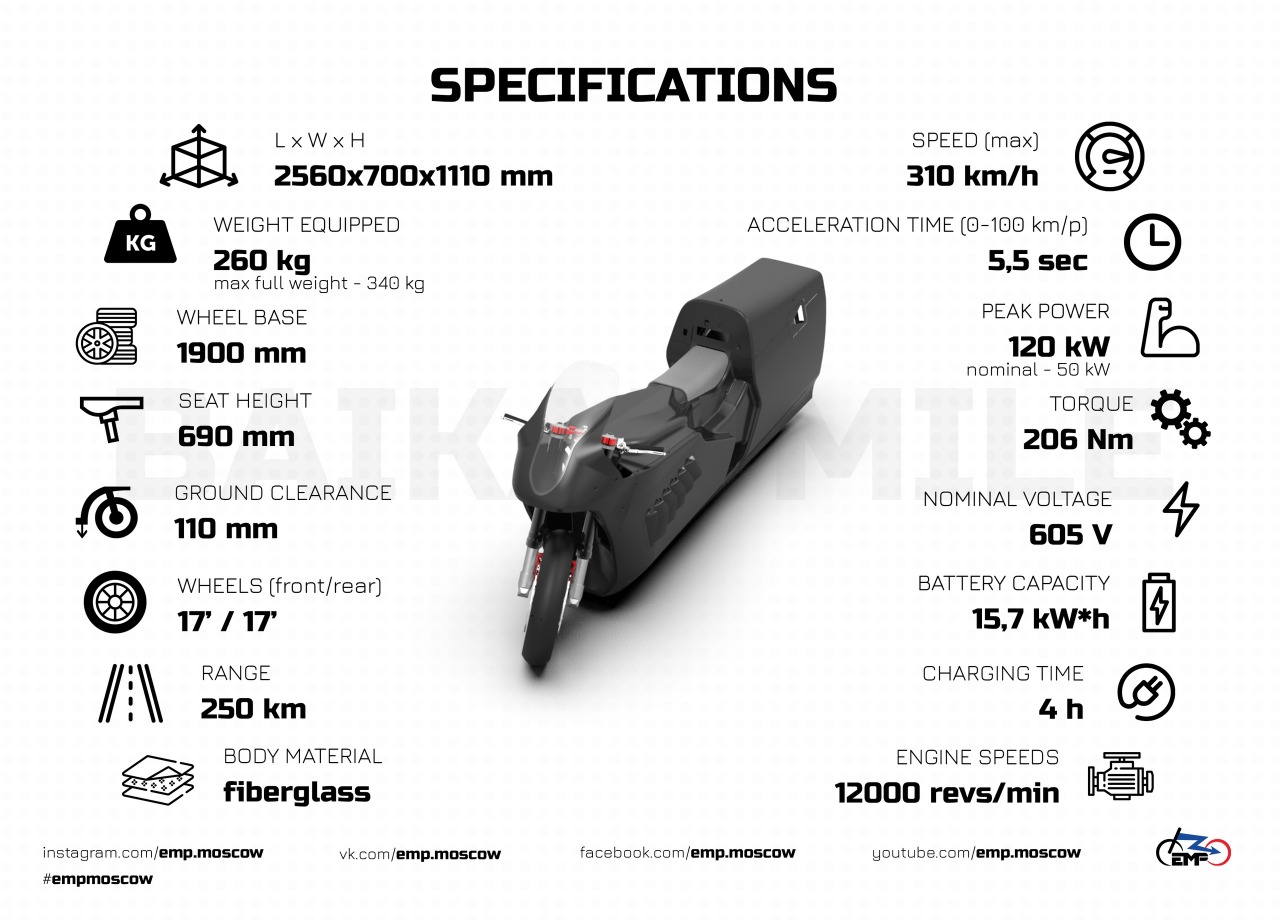
From your experience are we ready for electric mobility?
Yes and no. Yes, because mostly the technology is there, but the problem is that we lack the infrastructure. Where are you going to charge it nowadays and more importantly where are we going to get the (clean electricity from)? Most electric vehicles today are still powered by fossil fuel, It’s the same energy, just produced in a different place, which in the grand scheme of things isn’t very efficient. So yes, theoretically we can do this but we’re a long way from it becoming a reality.
